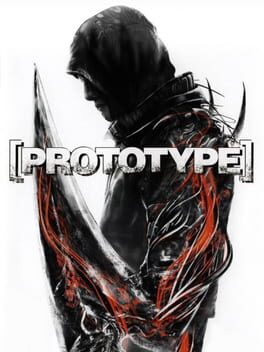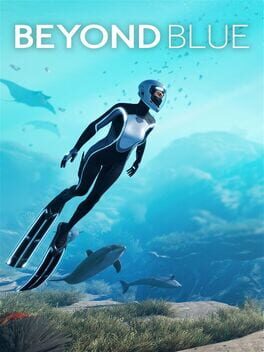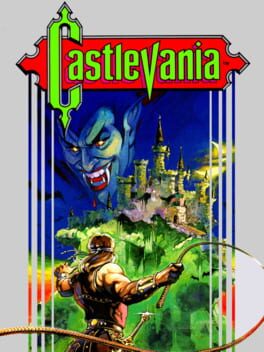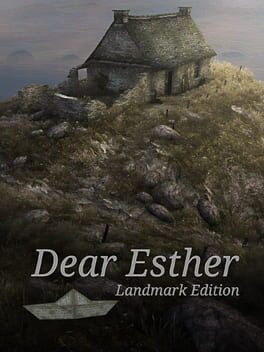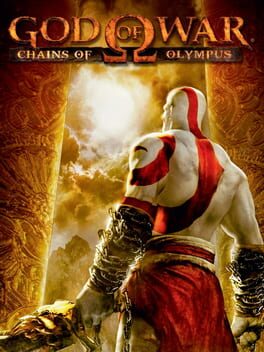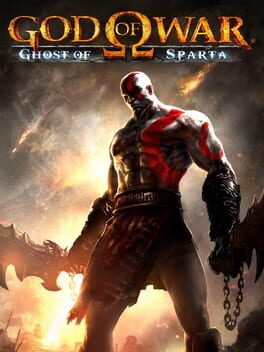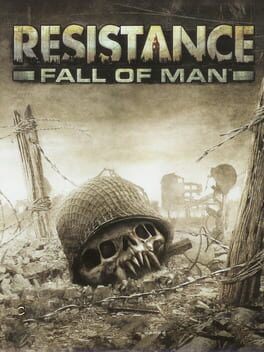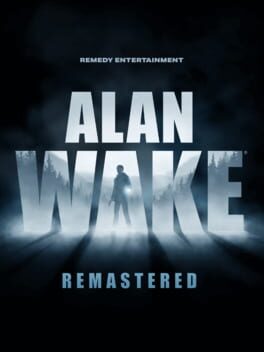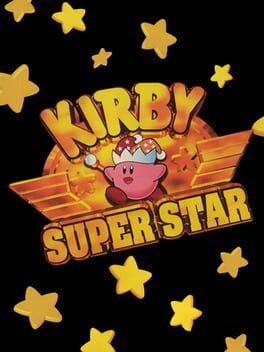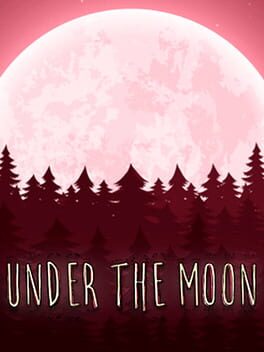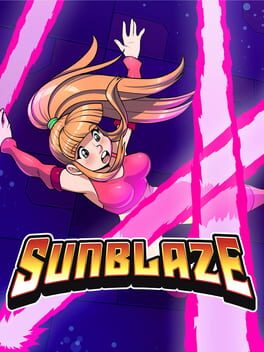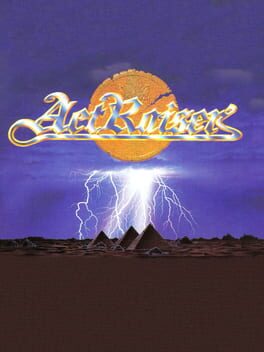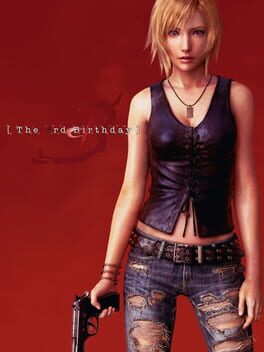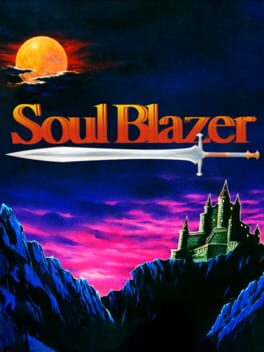Powerforce
BACKER
2001
You'll need some patience to get through this game. Before getting your first "weapon upgrade" fights take too long, your companion's AI is a little unresponsive, and controls in general can be a little janky. Considering who the protagonists are, on the realism side of things, it does a good job, but this isn't for everyone. Rushing will get you nowhere, so if you're feeling frustrated with the game, turn it off and come back later. It will make for a far better overall experience.
Where this game excels is in the presentation.
The game is incredibly minimalistic in pretty much all of its aspects.
The overall atmosphere and environment is really well done. It has to be experienced and can't exactly be put into words.
The story is open to interpretation and you're free to fill in the wide gaps however you wish.
The puzzles are made in a clever way where they aren't difficult, but if you're not paying attention to the little hints given to you by either by the camera angles or your companion (although you have to wait for a bit before she points it out) you'll be stuck for longer than you normally would.
On a first playthrough, it can take a bit before you're used to the game's systems and overall feel. On a second playthrough, while you'll know what's going on, it's fun to catch the little details you may have missed and it will be an overall smoother experience.
Even with the flaws this game has, if you're interested in playing through a good chunk of the PS2's library, I'd recommend you give this game a try.
Where this game excels is in the presentation.
The game is incredibly minimalistic in pretty much all of its aspects.
The overall atmosphere and environment is really well done. It has to be experienced and can't exactly be put into words.
The story is open to interpretation and you're free to fill in the wide gaps however you wish.
The puzzles are made in a clever way where they aren't difficult, but if you're not paying attention to the little hints given to you by either by the camera angles or your companion (although you have to wait for a bit before she points it out) you'll be stuck for longer than you normally would.
On a first playthrough, it can take a bit before you're used to the game's systems and overall feel. On a second playthrough, while you'll know what's going on, it's fun to catch the little details you may have missed and it will be an overall smoother experience.
Even with the flaws this game has, if you're interested in playing through a good chunk of the PS2's library, I'd recommend you give this game a try.
2009
Prototype 1 was an interesting experience for me. While the game lacks memorability and has flaws in a lot of areas, it was actually quite fun and enjoyable overall. It felt like one of those ''make your own fun'' type of games, so it's a hit or miss, which I wouldn't normally recommend.
You're Alex Mercer and you've been infected with a virus. How you got it, what the virus exactly is, and how it's basically in the center of everything that happens in the story, I won't spoil. Overall though, if I had to give my opinion of the story, it's a cool, if overused concept, but it lacks gripping characters, making you wish it was something more and adding to the already mentioned lack of memorability.
Where the game shines is making you feel like a superhero, or more accurately a genetically modified superhuman. The game takes place in an urban setting and it's really just that. It isn't exactly pretty to look at and there aren't really any memorable areas. The cool part is the traversal system. Flying in the air, jumping really high from building to building, running up walls, and assuming the form of other people so you blend in. It's all really cool and makes going from point A to point B a fun experience, in what is a rather meh urban setting without any memorable set pieces.
A superhuman would be nothing without powers and this game has a few neat ones. You have claws, which is your standard weapon for dealing with basic enemies. Hammer firsts and a blade for larger enemies. And a whipfist for dealing with enemies like a helicopter. At certain times the acquisition of one weapon (like the blade) made another one (the claws) obsolete, which is a shame, but they're there, They're not an optimal choice anymore, but if you had fun with them, use them.
The two aforementioned things above work well enough to give you the feeling of being superhuman, having a fun time causing chaos, and wrecking your enemies, which is where most of this game's memorability was.
The mission design was hit-and-miss. There were certain sections that were poorly thought out including one where you lost all your powers. That was dreadful to go through and it's pretty obvious this game has first game syndrome.
After all that rambling, I'd ultimately say I had a fun time with this game. I only wish it was more polished in areas like characters or mission design.
You're Alex Mercer and you've been infected with a virus. How you got it, what the virus exactly is, and how it's basically in the center of everything that happens in the story, I won't spoil. Overall though, if I had to give my opinion of the story, it's a cool, if overused concept, but it lacks gripping characters, making you wish it was something more and adding to the already mentioned lack of memorability.
Where the game shines is making you feel like a superhero, or more accurately a genetically modified superhuman. The game takes place in an urban setting and it's really just that. It isn't exactly pretty to look at and there aren't really any memorable areas. The cool part is the traversal system. Flying in the air, jumping really high from building to building, running up walls, and assuming the form of other people so you blend in. It's all really cool and makes going from point A to point B a fun experience, in what is a rather meh urban setting without any memorable set pieces.
A superhuman would be nothing without powers and this game has a few neat ones. You have claws, which is your standard weapon for dealing with basic enemies. Hammer firsts and a blade for larger enemies. And a whipfist for dealing with enemies like a helicopter. At certain times the acquisition of one weapon (like the blade) made another one (the claws) obsolete, which is a shame, but they're there, They're not an optimal choice anymore, but if you had fun with them, use them.
The two aforementioned things above work well enough to give you the feeling of being superhuman, having a fun time causing chaos, and wrecking your enemies, which is where most of this game's memorability was.
The mission design was hit-and-miss. There were certain sections that were poorly thought out including one where you lost all your powers. That was dreadful to go through and it's pretty obvious this game has first game syndrome.
After all that rambling, I'd ultimately say I had a fun time with this game. I only wish it was more polished in areas like characters or mission design.
2020
The game looks pretty good visually and it's relatively relaxing, with you swimming around and reading the various trivia on the ocean life. After beating the game you can replay whichever part you want again and explore at your own pace, which is nice. Nothing bad, but nothing outstanding here either.
The was the story was told is a shame. It's a pretty short game that won't take more than 3 hours to beat, but the story is told in a really slow manner. Towards its end, it seems like its building towards its first major reveal, but it just ends and all that buildup felt like it was for nothing.
The was the story was told is a shame. It's a pretty short game that won't take more than 3 hours to beat, but the story is told in a really slow manner. Towards its end, it seems like its building towards its first major reveal, but it just ends and all that buildup felt like it was for nothing.
1986
I've dropped this game plenty of times before finally completing it today.
I've had difficulties with the first boss, the Medusa heads, the knockback, the stairs, and everything in between. As of this playthrough, it was stage 17 (which I won't spoil, but is quite difficult).
It's only you, your whip and your secondary weapon; nothing to make you stand out or make it possible to find a shortcut, unless you haven't accumulated enough experience from previous tries.
And this is what the game ultimately is. Like a lot of the games from the period that have limited lives, it's about gradually getting better until you finally beat it. And this was a difficult game that took quite a few tries.
But despite not being my type of game, especially with stuff like the knockback, the janky controls, and the way the stairs worked, it felt satisfying to finally complete, even if the journey to get there was still quite frustrating at times.
I've had difficulties with the first boss, the Medusa heads, the knockback, the stairs, and everything in between. As of this playthrough, it was stage 17 (which I won't spoil, but is quite difficult).
It's only you, your whip and your secondary weapon; nothing to make you stand out or make it possible to find a shortcut, unless you haven't accumulated enough experience from previous tries.
And this is what the game ultimately is. Like a lot of the games from the period that have limited lives, it's about gradually getting better until you finally beat it. And this was a difficult game that took quite a few tries.
But despite not being my type of game, especially with stuff like the knockback, the janky controls, and the way the stairs worked, it felt satisfying to finally complete, even if the journey to get there was still quite frustrating at times.
This didn't click with me at all.
It's only slightly longer than an hour, but the choice of having the main character walk so slowly makes it feel longer and even pads the game length.
The game looks pretty (even if the environmental variety is lacking) and I wouldn't have been against slowing the player's speed in some areas to soak up and immerse them in the atmosphere, but the choice of the character being so slow all the time made it painful to play.
As for the story, well, it feels like it was incredibly uninspired. It was far too cryptic and there was nothing in it which made me think I should like or dislike a certain character. It was simply painful indifference. It also didn't help you couldn't interact with anything to give you the illusion you were at least playing a game, so you're stuck walking slowly while listening to a narration which neither felt gripping or interesting.
It's only slightly longer than an hour, but the choice of having the main character walk so slowly makes it feel longer and even pads the game length.
The game looks pretty (even if the environmental variety is lacking) and I wouldn't have been against slowing the player's speed in some areas to soak up and immerse them in the atmosphere, but the choice of the character being so slow all the time made it painful to play.
As for the story, well, it feels like it was incredibly uninspired. It was far too cryptic and there was nothing in it which made me think I should like or dislike a certain character. It was simply painful indifference. It also didn't help you couldn't interact with anything to give you the illusion you were at least playing a game, so you're stuck walking slowly while listening to a narration which neither felt gripping or interesting.
Chains of Olympus accomplishes what it sets out to do quite well - a portable God of War experience.
In terms of structure and overall gameplay feel, it feels like a smoother and more streamlined GoW1.
This game doesn't take big risks and with that there are some positives. You don't have anything as infuriating as the Hades spinning blades section in GoW1, neither do you have as gimmicky of a final boss battle as well.
It goes a little bit deeper, as magics like the Efreet and the Light of Dawn are pretty much reskins of Poseidon's Fury and Zeus' Fury respectively.
The Blades of Chaos are still pretty fun to use and the combat has a nice flowy feel to it as always.
The Gauntlet of Zeus, which you get way after the halfway point of the game has its uses in comparison to the Arms of Sparta in the sequel. It does a nice amount of damage and there are certain enemies you can't beat without it, so there's some incentive to use it.
Typically I would say that giving it late into the game is a bad thing, but this worked out well, because the game is pretty generous with how much red orbs and various chests it gives in general.
You'll have pretty much maxed your weapons, magic, HP, and magic bar by the final boss.
The game felt slightly longer than Ghost of Sparta, but it was overall pretty short and will take no more than 5 and a half to 6 hours to complete.
Now, the game also has its issues. I replayed it on Normal, so it wasn't as apparent, but on the rare moments I died, I noticed the checkpoint system in this game was pretty bad, so be prepared to either replay certain large sections or rewatch an unskippable cutscene.
By the final section of the game, it also became apparent the enemy variety got monotonous, but luckily the game was short enough to where it wasn't as bad as it could've been.
It has its flaws, but it's a commendable first effort considering the hardware they worked on and it still felt as fun as the first time I played it.
In terms of structure and overall gameplay feel, it feels like a smoother and more streamlined GoW1.
This game doesn't take big risks and with that there are some positives. You don't have anything as infuriating as the Hades spinning blades section in GoW1, neither do you have as gimmicky of a final boss battle as well.
It goes a little bit deeper, as magics like the Efreet and the Light of Dawn are pretty much reskins of Poseidon's Fury and Zeus' Fury respectively.
The Blades of Chaos are still pretty fun to use and the combat has a nice flowy feel to it as always.
The Gauntlet of Zeus, which you get way after the halfway point of the game has its uses in comparison to the Arms of Sparta in the sequel. It does a nice amount of damage and there are certain enemies you can't beat without it, so there's some incentive to use it.
Typically I would say that giving it late into the game is a bad thing, but this worked out well, because the game is pretty generous with how much red orbs and various chests it gives in general.
You'll have pretty much maxed your weapons, magic, HP, and magic bar by the final boss.
The game felt slightly longer than Ghost of Sparta, but it was overall pretty short and will take no more than 5 and a half to 6 hours to complete.
Now, the game also has its issues. I replayed it on Normal, so it wasn't as apparent, but on the rare moments I died, I noticed the checkpoint system in this game was pretty bad, so be prepared to either replay certain large sections or rewatch an unskippable cutscene.
By the final section of the game, it also became apparent the enemy variety got monotonous, but luckily the game was short enough to where it wasn't as bad as it could've been.
It has its flaws, but it's a commendable first effort considering the hardware they worked on and it still felt as fun as the first time I played it.
I decided to go back and replay this game. I still had a pretty enjoyable time, but there are a couple of things I noticed on this playthrough that brought my enjoyment down a bit.
The story is filled with a lot of holes, which I won't mention to avoid spoilers. The main selling point of the series was never the story, so it gets a slight pass due to that.
Combat still felt pretty fun, especially when using the Blades of Chaos, and the varied and mostly fun way to play against enemies carried this game. The Arms of Sparta are an interesting weapon, but they are acquired a bit late into the game, and by that point you'll have invested a lot into the Blades of Chaos, so their usefulness outside of a few sequences is a bit limited because of that. If you've already played most of the other games in the series, at this point, you probably won't be blown away by what this game offers, but if you like what you played in the other games and want more of that, you won't be disappointed. A series fatigue setting in, especially if you've binged through the series before reaching this game, can definitely be felt, though.
Puzzles are nonexistent, which may not appeal to some people, but I didn't mind it.
The game only took a little over 5 hours to beat, and the most unfortunate part was how the section before the final boss felt pretty underwhelming. It was like a hodgepodge meant to add an extra 30 minutes to an already short game. The final boss and ending were even better than I remembered them though, and at least wrapped things up nicely.
The story is filled with a lot of holes, which I won't mention to avoid spoilers. The main selling point of the series was never the story, so it gets a slight pass due to that.
Combat still felt pretty fun, especially when using the Blades of Chaos, and the varied and mostly fun way to play against enemies carried this game. The Arms of Sparta are an interesting weapon, but they are acquired a bit late into the game, and by that point you'll have invested a lot into the Blades of Chaos, so their usefulness outside of a few sequences is a bit limited because of that. If you've already played most of the other games in the series, at this point, you probably won't be blown away by what this game offers, but if you like what you played in the other games and want more of that, you won't be disappointed. A series fatigue setting in, especially if you've binged through the series before reaching this game, can definitely be felt, though.
Puzzles are nonexistent, which may not appeal to some people, but I didn't mind it.
The game only took a little over 5 hours to beat, and the most unfortunate part was how the section before the final boss felt pretty underwhelming. It was like a hodgepodge meant to add an extra 30 minutes to an already short game. The final boss and ending were even better than I remembered them though, and at least wrapped things up nicely.
Resistance 1 is a game that I revisit from time to time and beat on co-op with friends. This time we beat it on hard and oh boy was it both frustrating, but also fun to play.
When I played the game initially, I found it to have a pretty cool array of weapons, interesting enemies, and a cool, albeit typical for that era of shooters gloomy setting.
One of the things I most fondly remember was this game's weapon wheel and how you couldn't go far in the game without utilizing the variety of weapons you're given. Luckily, that was still the case and provided for a pretty good and non-monotonous experience.
I had not realized it at first, but one of the things that hard difficulty really showcases is how unforgiving the checkpoints in this game are. If you die a lot, be prepared to replay big sections of a level once again.
The story by itself isn't anything special, but when I first played through the game, the overall in-game universe intrigued me enough to go and read a lot of the stuff on the fan wiki. I spoiled myself on a large part of the series and hadn't even tried out the other games yet, but that's a separate issue. :D
Outside of the checkpoints, the most disappointing part was the final boss. Without spoiling too much, there wasn't really one and felt like you were defeating waves of enemies instead. However, final bosses were rarely this series' strong point.
If I didn't play it on couch co-op, I would likely have a different opinion, but I still enjoyed this game quite a bit, just like the old times. There are better shooters than it, and it shows pretty clearly that it's a PS3 launch title, but there's something about this game that makes me revisit it. Checkpoints and the "final boss" slightly bring it down, I'm willing to overlook them, because of the overall experience.
When I played the game initially, I found it to have a pretty cool array of weapons, interesting enemies, and a cool, albeit typical for that era of shooters gloomy setting.
One of the things I most fondly remember was this game's weapon wheel and how you couldn't go far in the game without utilizing the variety of weapons you're given. Luckily, that was still the case and provided for a pretty good and non-monotonous experience.
I had not realized it at first, but one of the things that hard difficulty really showcases is how unforgiving the checkpoints in this game are. If you die a lot, be prepared to replay big sections of a level once again.
The story by itself isn't anything special, but when I first played through the game, the overall in-game universe intrigued me enough to go and read a lot of the stuff on the fan wiki. I spoiled myself on a large part of the series and hadn't even tried out the other games yet, but that's a separate issue. :D
Outside of the checkpoints, the most disappointing part was the final boss. Without spoiling too much, there wasn't really one and felt like you were defeating waves of enemies instead. However, final bosses were rarely this series' strong point.
If I didn't play it on couch co-op, I would likely have a different opinion, but I still enjoyed this game quite a bit, just like the old times. There are better shooters than it, and it shows pretty clearly that it's a PS3 launch title, but there's something about this game that makes me revisit it. Checkpoints and the "final boss" slightly bring it down, I'm willing to overlook them, because of the overall experience.
2021
The overall presentation of the game is really good. The visuals, music, and sound create a majestic atmosphere. The game follows an episodic structure and is split into 8 episode (6 main story + 2 DLC), each filled with plenty of twists and cliffhangers, which sets up the upcoming sequel quite nicely.
The story has an interesting premise and creates a world, which if you like ambiguity and speculation, will be your cup of tea.
In contrast, the gameplay kind of felt like it was neglected, leading to a bit of a mixed experience.
Checkpoints are sometimes placed a bit weirdly, forcing you to replay large sections if you die.
Due to the way the character is presented, I don't mind him having stamina, but the decision to not add a visible stamina bar was odd.
Playing optimally is indirectly discouraged, at least on normal difficulty. You have very little reason not to waste a lot of your items, since not only do you get a lot of them, but they get taken away from you at the end of each episode anyway.
The worst offender, however, is the camera. It's placed so close to the character that when you try to run from enemies, you don't have much of a choice except to either blind dodge and hope for the best, or turn it around and hope you don't get hit. Unfortunately, the overall levels are pretty narrow and there are plenty of instances where a lot of enemies will chase you, further accentuating the problem.
Overall, the story and presentation are great and create an interesting world, but the gameplay feels lacking, although if you're used to clunkiness, it won't feel as bad.
The story has an interesting premise and creates a world, which if you like ambiguity and speculation, will be your cup of tea.
In contrast, the gameplay kind of felt like it was neglected, leading to a bit of a mixed experience.
Checkpoints are sometimes placed a bit weirdly, forcing you to replay large sections if you die.
Due to the way the character is presented, I don't mind him having stamina, but the decision to not add a visible stamina bar was odd.
Playing optimally is indirectly discouraged, at least on normal difficulty. You have very little reason not to waste a lot of your items, since not only do you get a lot of them, but they get taken away from you at the end of each episode anyway.
The worst offender, however, is the camera. It's placed so close to the character that when you try to run from enemies, you don't have much of a choice except to either blind dodge and hope for the best, or turn it around and hope you don't get hit. Unfortunately, the overall levels are pretty narrow and there are plenty of instances where a lot of enemies will chase you, further accentuating the problem.
Overall, the story and presentation are great and create an interesting world, but the gameplay feels lacking, although if you're used to clunkiness, it won't feel as bad.
1996
Rather than focusing on one big adventure, Kirby Super Star splits your experience into seven smaller games plus two mini-games. This keeps things fresh and actually works to the game's benefit, as despite having different stories and objectives, they largely retain the same gameplay mechanics.
Graphics are colorful and lovely to look at. The music was varied and pretty good as well.
Being able to gain the abilities of your enemies as your own was an awesome addition and added a lot of depth to the game. Being able to summon an ally was nice as well, but the AI felt inconsistent. There were times where the ally would mostly stand there and quickly perish, and times where it carried an entire boss battle on its own. Not to mention there's an exploit where you can transform your ally back into an item, consume them, and resummon them, which fully restores their HP.
The most positive impression I had of this game was how well it handled the difficulty. The initial modes, Spring Breeze and Dyna Blade, are on the easier side and serve as a sort of tutorial to familiarize yourself with the mechanics and what to expect.
The Great Cave Offensive throws a Metroidvania-esque spin on the gameplay formula. Unfortunately, I found out you can only achieve 100% completion of the mode in co-op, which is a shame. It was fun to explore and get through the four stages regardless.
Gourmet Race was on the more gimmicky side, and while I didn't enjoy it as much as the other modes, it's fine for what it is.
Revenge of Meta Knight, Milky Way Wishes, and the Arena kick the difficulty up a notch and put your previously gained knowledge of the game mechanics and enemies to the test.
Overall, I'd say this is easily one of the best platformers on the SNES and a great game in general.The choice of splitting the game into bite-sized experiences keeps it fresh; the gameplay is action-packed and has a nice layer of depth to it. The inconsistent AI of your ally can be a bit annoying, but there's always the option of co-op to circumvent that.
Graphics are colorful and lovely to look at. The music was varied and pretty good as well.
Being able to gain the abilities of your enemies as your own was an awesome addition and added a lot of depth to the game. Being able to summon an ally was nice as well, but the AI felt inconsistent. There were times where the ally would mostly stand there and quickly perish, and times where it carried an entire boss battle on its own. Not to mention there's an exploit where you can transform your ally back into an item, consume them, and resummon them, which fully restores their HP.
The most positive impression I had of this game was how well it handled the difficulty. The initial modes, Spring Breeze and Dyna Blade, are on the easier side and serve as a sort of tutorial to familiarize yourself with the mechanics and what to expect.
The Great Cave Offensive throws a Metroidvania-esque spin on the gameplay formula. Unfortunately, I found out you can only achieve 100% completion of the mode in co-op, which is a shame. It was fun to explore and get through the four stages regardless.
Gourmet Race was on the more gimmicky side, and while I didn't enjoy it as much as the other modes, it's fine for what it is.
Revenge of Meta Knight, Milky Way Wishes, and the Arena kick the difficulty up a notch and put your previously gained knowledge of the game mechanics and enemies to the test.
Overall, I'd say this is easily one of the best platformers on the SNES and a great game in general.The choice of splitting the game into bite-sized experiences keeps it fresh; the gameplay is action-packed and has a nice layer of depth to it. The inconsistent AI of your ally can be a bit annoying, but there's always the option of co-op to circumvent that.
2022
There are 6 levels and in each level, you're given a series of riddles and try to find an item which matches that riddle. Levels are rather narrow, and after a certain amount of items have been found, you move on to the next level.
Not a bad concept, but the execution is not good and the overall polishing is severely lacking.
The in-game English translation feels pretty off, with grammatical errors and unintentionally hilarious word choices like "blood of the salad anatomy" being present.
Voice acting feels like it's been largely made with text-to-speech and there were occasional glitches like people phasing out of existence.
As already mentioned, the translation is off and this can make the riddle descriptions hard to understand; "Your legs are the legs of this mechanical horse" being one example. Regardless, you can roam around and interact with everything. You'll get the correct answer sooner or later this way.
If this was more polished, it could be an alright game for someone who is just getting into video games and wants something simple to play.
I got it for free and even though it's a short game (won't take more than 3 hours), in its current state, I wouldn't recommend it.
Not a bad concept, but the execution is not good and the overall polishing is severely lacking.
The in-game English translation feels pretty off, with grammatical errors and unintentionally hilarious word choices like "blood of the salad anatomy" being present.
Voice acting feels like it's been largely made with text-to-speech and there were occasional glitches like people phasing out of existence.
As already mentioned, the translation is off and this can make the riddle descriptions hard to understand; "Your legs are the legs of this mechanical horse" being one example. Regardless, you can roam around and interact with everything. You'll get the correct answer sooner or later this way.
If this was more polished, it could be an alright game for someone who is just getting into video games and wants something simple to play.
I got it for free and even though it's a short game (won't take more than 3 hours), in its current state, I wouldn't recommend it.
2021
Very Celeste-esque in its presentation and overall gameplay feel, with a little bit of a Super Meat Boy influence as well, Sunblaze is a decent platformer, which can be challenging at times, but at least doesn't feel unfair.
Graphics and music are alright, the story is just there, and there is both a built-in cheats system and a zen mode (basically easy difficulty) for extra accessibility.
Graphics and music are alright, the story is just there, and there is both a built-in cheats system and a zen mode (basically easy difficulty) for extra accessibility.
1990
An interesting mix between an RPG, a 2D side-scroller and a city sim is one way to describe ActRaiser. Due to that, it may not be to everyone's taste, but it piqued my interest enough to play through it.
If you've played any of the games from the Quintet trilogy (Soul Blazer, Illusion of Gaia or Terranigma), you'll find some familiar things here. This makes the game a sort of spiritual prequel to those games.
Despite the game's mix of genres, the overall mechanics aren't very complex. The side scrolling stages are pretty much what you'd expect from any side-scroller released around that time, so you only have a jump, a normal attack and a magic attack. Go through a stage, fight some monsters, do some platforming and fight a boss at the end. Very minimalistic, but above all, it encourages learning enemy patterns and making the most of the little you have.
Although simple in nature as well, the city sim element is the spice of this game. You have to guide a location to prosperity by using your powers over nature to free up space and give people orders where to expand.
Of course, their expansion isn't something to ignore, as people in this game are the equivalent of XP, so it's better to have more than less. Also, you receive some nice items (as as they're called in-game - offerings) in return.
There will be monsters that will try to sabotage this progress, so you'll have to protect the people while they expand. The entire thing is like a pretty basic 2D shooter.
Once people expand enough in a certain direction, they can seal a monster spawning point (lair) so it doesn't bother you again. You can't command people to build specific things which is a shame.
Regardless, it's satisfying to watch a place grow and see the progress of slowly intertwining these separate locations with each other.
Overall, despite its simplicity, ActRaiser has a nice flow to it, which binds it together pretty well and makes it a solid game. It's also around 6 hours long, so it doesn't overstay its welcome.
If you've played any of the games from the Quintet trilogy (Soul Blazer, Illusion of Gaia or Terranigma), you'll find some familiar things here. This makes the game a sort of spiritual prequel to those games.
Despite the game's mix of genres, the overall mechanics aren't very complex. The side scrolling stages are pretty much what you'd expect from any side-scroller released around that time, so you only have a jump, a normal attack and a magic attack. Go through a stage, fight some monsters, do some platforming and fight a boss at the end. Very minimalistic, but above all, it encourages learning enemy patterns and making the most of the little you have.
Although simple in nature as well, the city sim element is the spice of this game. You have to guide a location to prosperity by using your powers over nature to free up space and give people orders where to expand.
Of course, their expansion isn't something to ignore, as people in this game are the equivalent of XP, so it's better to have more than less. Also, you receive some nice items (as as they're called in-game - offerings) in return.
There will be monsters that will try to sabotage this progress, so you'll have to protect the people while they expand. The entire thing is like a pretty basic 2D shooter.
Once people expand enough in a certain direction, they can seal a monster spawning point (lair) so it doesn't bother you again. You can't command people to build specific things which is a shame.
Regardless, it's satisfying to watch a place grow and see the progress of slowly intertwining these separate locations with each other.
Overall, despite its simplicity, ActRaiser has a nice flow to it, which binds it together pretty well and makes it a solid game. It's also around 6 hours long, so it doesn't overstay its welcome.
2010
It was 2010. It wasn't my 3rd birthday, and I didn't know this game existed.
Now it's 2023 and I know it does exist. The simpler times are long gone and while no cakes were harmed or birthdays were ruined during the making of this game and the writing of this review (but certainly could be if you gifted this to someone for their birthday), this was overall pretty bad.
To begin with the positives, I like the music and the graphics (compared to most things on the PSP) are among the handheld's best. That's pretty much it.
The story is weird and not in a good way. From what I could gather, you don't need to play Parasite Eve 1 and 2 to understand it, but nevertheless, it's confusing and paced like a Rick and Morty episode. It's all over the place and you never get a good explanation for much of it until the very end of the game.
You can read stuff concerning characters before the beginning of a mission (or as they're called in-game - episode), but it feels lazy that they went with this route rather than incorporating it into the gameplay and cutscenes.
The body switching mechanic (called Overdive) is a cool idea, but everything surrounding it brings it down. Beyond giving the AI orders to focus on one target, you can't really tell them what to do, so a lot of strategy and depth which would've benefitted the game is not there. The friendly AI itself kinda stands there and just shoots. It's not well designed and you have to really try to go out of your way to keep it alive.
The worst thing, however, are the controls. At times they make Shaq Fu look like a masterpiece. There's a clunkiness to them that makes you feel like you're walking on a wet floor. The camera doesn't help, and oftentimes adds to that feeling. At least they added an auto-aim for most weapons, which is nice. Be prepared for a lot of frustration even with that, as enemies even on normal difficulty don't show much mercy and can quickly kill you, on top of also being bullet sponges.
The game would've been fine on the gameplay side of things if it was initially designed for PC/PS3/XBOX360. The PSP was a bad choice for this type of shooter. Considering the first two games of the series, it would've been best if this was an RPG like them.
The story, preferably, also needs an overhaul.
The 3rd Birthday, more like The 3rd Disappointment, am I right? :P
Yeah, in its current state, I wouldn't recommend it to anyone.
Now it's 2023 and I know it does exist. The simpler times are long gone and while no cakes were harmed or birthdays were ruined during the making of this game and the writing of this review (but certainly could be if you gifted this to someone for their birthday), this was overall pretty bad.
To begin with the positives, I like the music and the graphics (compared to most things on the PSP) are among the handheld's best. That's pretty much it.
The story is weird and not in a good way. From what I could gather, you don't need to play Parasite Eve 1 and 2 to understand it, but nevertheless, it's confusing and paced like a Rick and Morty episode. It's all over the place and you never get a good explanation for much of it until the very end of the game.
You can read stuff concerning characters before the beginning of a mission (or as they're called in-game - episode), but it feels lazy that they went with this route rather than incorporating it into the gameplay and cutscenes.
The body switching mechanic (called Overdive) is a cool idea, but everything surrounding it brings it down. Beyond giving the AI orders to focus on one target, you can't really tell them what to do, so a lot of strategy and depth which would've benefitted the game is not there. The friendly AI itself kinda stands there and just shoots. It's not well designed and you have to really try to go out of your way to keep it alive.
The worst thing, however, are the controls. At times they make Shaq Fu look like a masterpiece. There's a clunkiness to them that makes you feel like you're walking on a wet floor. The camera doesn't help, and oftentimes adds to that feeling. At least they added an auto-aim for most weapons, which is nice. Be prepared for a lot of frustration even with that, as enemies even on normal difficulty don't show much mercy and can quickly kill you, on top of also being bullet sponges.
The game would've been fine on the gameplay side of things if it was initially designed for PC/PS3/XBOX360. The PSP was a bad choice for this type of shooter. Considering the first two games of the series, it would've been best if this was an RPG like them.
The story, preferably, also needs an overhaul.
The 3rd Birthday, more like The 3rd Disappointment, am I right? :P
Yeah, in its current state, I wouldn't recommend it to anyone.
1992
The game is pretty simplistic in a lot of its areas, but the way it's structured and paced makes it satisfying to play.
A king made a terrible decision and now you, a divine angel, are sent by someone simply known as the "Master" to restore things to how they once were. As you traverse dungeons and defeat enemies, you restore a particular location to its previous state, one thing at a time. The protagonist is silent and the story itself can be boiled down to a simple tale of good vs evil. Despite this, seeing the world slowly rebuild, and interacting with each denizen you restored felt pretty cool.
The top-down hack 'n slash combat (which if you've played a 2D Zelda game will feel pretty familiar) isn't exactly deep and the magic system felt somewhat weird and awkward to land, but learning the enemy and boss patterns and how to beat them felt pretty satisfying regardless.
There was very little grinding, enemies in dungeons (with small exceptions) didn't respawn upon reentering and the game is generous with shortcuts, drastically reducing the amount of backtracking.
It's a breath of fresh air, making this, at least for me, one of the more accessible games for the SNES.
Since it came out early in the SNES' lifespan, the graphics aren't anything to write home about, but there is a nice variety of visuals in each area.
The music is good and captures the feeling of each area pretty well, while simultaneously being catchy. Although, it's a bit of a shame there aren't that many tracks.
A few small nitpicks that I have is that hit boxes can be a little weird at times, and there's no way to skip or change the speed of the in-game text, which is somewhat annoying.
Overall, the game has an interesting concept and a fun gameplay loop, although its simplicity might make it boring for some people. Worth trying if you're a fan of early 90s ARPGs.
A king made a terrible decision and now you, a divine angel, are sent by someone simply known as the "Master" to restore things to how they once were. As you traverse dungeons and defeat enemies, you restore a particular location to its previous state, one thing at a time. The protagonist is silent and the story itself can be boiled down to a simple tale of good vs evil. Despite this, seeing the world slowly rebuild, and interacting with each denizen you restored felt pretty cool.
The top-down hack 'n slash combat (which if you've played a 2D Zelda game will feel pretty familiar) isn't exactly deep and the magic system felt somewhat weird and awkward to land, but learning the enemy and boss patterns and how to beat them felt pretty satisfying regardless.
There was very little grinding, enemies in dungeons (with small exceptions) didn't respawn upon reentering and the game is generous with shortcuts, drastically reducing the amount of backtracking.
It's a breath of fresh air, making this, at least for me, one of the more accessible games for the SNES.
Since it came out early in the SNES' lifespan, the graphics aren't anything to write home about, but there is a nice variety of visuals in each area.
The music is good and captures the feeling of each area pretty well, while simultaneously being catchy. Although, it's a bit of a shame there aren't that many tracks.
A few small nitpicks that I have is that hit boxes can be a little weird at times, and there's no way to skip or change the speed of the in-game text, which is somewhat annoying.
Overall, the game has an interesting concept and a fun gameplay loop, although its simplicity might make it boring for some people. Worth trying if you're a fan of early 90s ARPGs.

